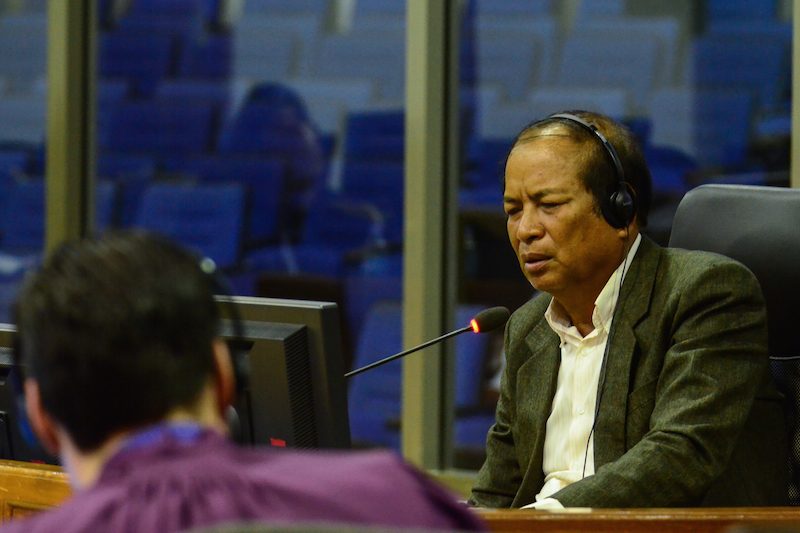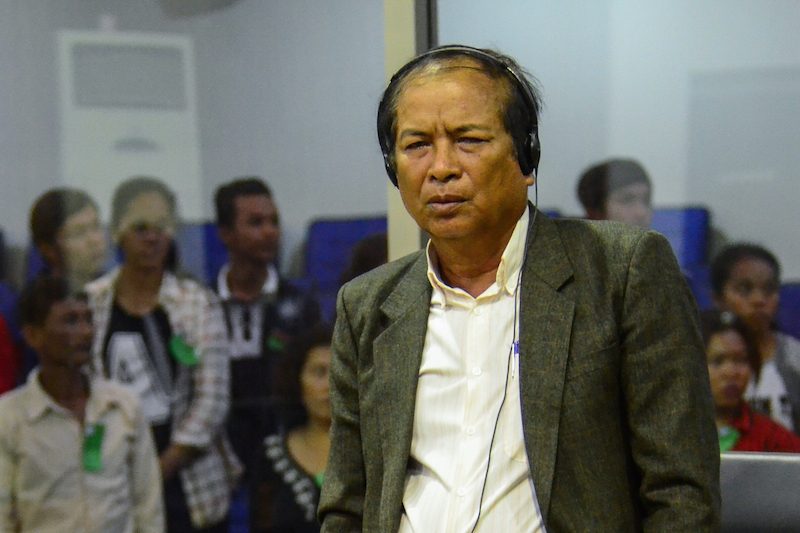A survivor of the Pol Pot regime told the Khmer Rouge tribunal on Thursday that a unit chief in Takeo province warned a group of 50 couples handpicked for forced marriage that they would be exterminated if they prayed for the deaths of their new spouses.
The man, identified only as 2-TCCP-232 due to his role in ongoing investigations, testified about forced marriages in the current phase of Case 002, in which Khmer Rouge leaders Nuon Chea and Khieu Samphan are on trial for crimes including genocide.

When the ultracommunists took control of Cambodia, the man, a former police officer, already had a fiancee from his school days whom he loved deeply and hoped to wed. But he said he was warned by a unit commander named Ry that if he married her he would meet the same fate as his fiancee’s brother—who was “smashed” by the regime.
Ry’s warning, he said, included an infamous Khmer Rouge slogan that implied a purge of those connected to a perceived enemy: “If you get married to that woman, you will die, because when we dig the grass we have to dig up the root.”
In mid-1978, the man was one of 50 couples chosen for forced marriage in Treang district. The unit chief then warned the couples of the deadly consequences they would face for refusing the regime’s choice of a partner. He recounted a cautionary tale of couples in Kompong Speu province’s Sector 33 who prayed for the deaths of their new partners.
He said he was told, “Both the beautiful ones and the ugly ones would be smashed if you follow the examples of those people.”
Later, from a distance, he saw skeletons in a forest that he believed were the dead from Sector 33.
“When I went into the forest in that area, I saw skeletons,” he said. “I thought that those skeletons belonged to the males and females who were killed.”

After the fall of the regime, the man remained with his wife, even though he didn’t love her, and they had children together. He said he remarried much later, after his wife became severely ill and a doctor told him he could no longer live with her.
He said he met his former fiancee once more, and despite their love for each other, they decided to stay apart in the hope they would be reunited in a future life.
“Each of us wept and we told each other that in this life we needed to make a good marriage. Maybe from our previous lives we did not make enough good marriages, so we have to make a good marriage in this life so in the future life we would be together,” he said.
“We kept weeping while hugging each other,” he said. “We understood each other and we had a lot of good memories.”



